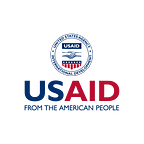Helping Humanitarians Save Lives
This blog was runner-up in our Future Humanitarian Contest. The author, Melanie Cushman, is a graduate student at the University of Southern California.
My passion for international relief and development started in high school when I took my first trip to work with orphans and vulnerable children in South Africa. Since then I have also spent time doing development work in the slums of Kenya, and, most recently, five months in the Philippines. I have seen first-hand the need of communities around the world who have fallen victim to poverty due to lack of clean water, nutrition, education, livelihoods, health, and more. Being in the field with relief and development organizations has not only shown me the needs of communities around the globe, but also the needs of full-time aid workers serving in these communities.
As a humanitarian aid worker, I have been trained to cope with situations involving physical threats abroad — but nothing can prepare you for the things you see every day in the field. In the five months I spent working abroad, I experienced first-hand the burnout of employees after long draining days . Some feel the burden of solving all the world’s problems, while others are so numb to poverty and death that they can no longer do their work wholeheartedly.
There is a huge need for organizational social workers to serve in non-governmental organizations and care for international aid workers. After earning my master’s degree in social work, I want to be an advocate for those doing humanitarian aid work. I want to show organizations the value in taking care of employees. Because my heart has been so deeply impacted by my work abroad, I feel responsible to live in light of all that I’ve seen and experienced by fighting for the holistic health of people worldwide.
Value has to start at the top and filter down. Humanitarian aid workers in the field must feel valued by their organizations, friends, and families in order to properly value the people they are going to help during a crisis. Value is the foundation of support. Although basic human needs are essential, in order for relief efforts to be sustainable, they must come from a foundation of seeing people as holistic beings with psychological, emotional, social, physical, and spiritual beings.
Every human life is valuable, regardless of gender, economic class, race, or nationality. Every person needs to know they are valued and they are not alone — it must be the number one thing we show people around the world.
In times of crisis, we show value though meeting tangible needs, and by providing social and emotional support. But we can always show value to others. Whether it is sharing a smile and genuine conversation with the clerk at the grocery store, or going overseas to assist in relief efforts after a typhoon, we must intentionally make others feel valued.
Learn more about the Future Humanitarian Contest and see this year’s winning video, “Humanitarian Heroes.”
